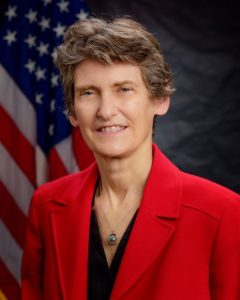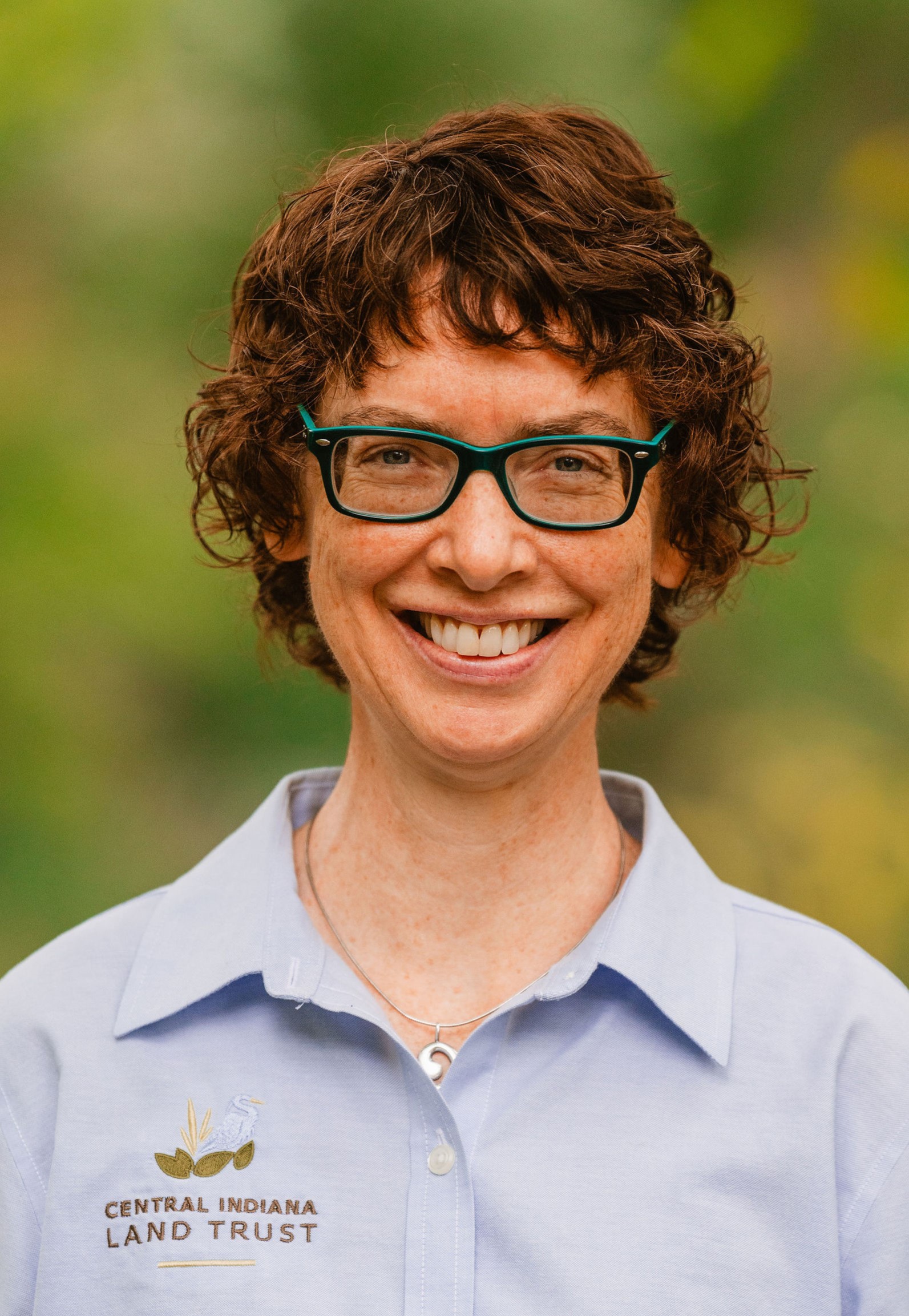Earlier this year, we had the chance to sit down with Indiana resident Janet McCabe, who serves as Deputy Administrator of the EPA. We profiled her in the winter newsletter. Here are some highlights from our conversation.

From the layperson’s standpoint, problems in the environmental arena are so overwhelming. How are you approaching this in your new position?
You know, there’s the old joke: “How do you eat an elephant? One bite at a time.” We know that there is science that says there are things that we can do to make our future better. And everybody has things that they can do. At the EPA, we have the opportunity to do things that can affect a lot of people all at once, through policies or grant programs, investments, and that sort of thing. But everybody has the opportunity, wherever they are in their professional and personal life, to take action. Organizations like yours obviously play a big part in both doing those things yourselves and encouraging other people to take action.
What keeps you up at night in terms of specific threats to the environment?
One is climate change. We see it here in the Midwest with more severe storms and flooding and the impacts that that has on farmers, on communities and on local governments who are trying to contend with these changes.
Related to that is an increasing awareness and urgency around the chronic unfairnesses in our society about who is most impacted by degraded environmental conditions. People who are poor, people who are in communities of color, and indigenous people in this country bear a higher burden of environmental pollution. And they will be unfairly and more significantly impacted by the adverse changes that we’re seeing from climate change.
How can either everyday Hoosiers or private land conservation organizations like ours play a role in addressing environmental injustices?
A key issue is for people to educate themselves about their own communities. And that means opening your eyes to the way everybody in your community lives, in the kinds of environments that they have. And the contrast that we have in some of our communities right here in Indiana is pretty stark.
I think people need to appreciate that everybody has an important voice in what they want their community to be. And finding ways to talk with one another is really important.
When I ask experts, “How do you talk with people who might have different views about climate change?” the answers that I get from people that I really respect are: “We have to find common ground with people and not feel like we have to engage on the areas where we disagree, because we may not be able to persuade one another. But we may both like birds. We may both have grandchildren that we like taking to the park. We may both grow vegetables in our backyard.”
There are ways to find common ground with people, respecting one another for where we all come from and what we care about.
I think that there are so many people of goodwill in this state and all across the country who, given the chance, will have those conversations and we’ll all benefit from them. And when you know somebody and you find ways to do productive things together, that’s what builds really strong relationships and communities. You (at CILTI) have volunteers who get out and clean trails, you lead hikes and workdays. This is a way to get people to engage with one another.
What gives you hope?
I spent the last four years working through Indiana University with local communities in Indiana. Just in the last four years, there’s been an amazing stepping up of cities, towns, counties and many communities to say, “Let’s not quibble about what vocabulary we use. Let’s recognize that the river is flooding, and it is a problem for us. It is dangerous. It is risky. And let’s get the information we need. Let’s get people to help us. Let’s work together.”
And you can see the improved air quality from getting more of our energy from clean energy sources. You can see the impacts that planting trees have on our quality of life. It’s these sorts of things that give me hope.
And frankly, I’m heartened by the messages that are coming from the Biden administration about the importance of these things, and the fact that we can integrate attention to climate change and environmental equality into the other important work that we’re doing in this country. We can do all of that (while) being very mindful of not only not exacerbating the climate change challenge, but also making ourselves more resilient in the process.
What do you see as the role of small local land trusts like ours and addressing some of these problems?
First of all, protecting land in a natural state is important in and of itself. Open land helps with flood control. Open land helps with carbon absorbing vegetation. Open land helps with biodiversity which helps with healthy ecosystems. Everything touches everything else.
Also, your properties provide ways for people to get out into nature, which improves our physical and mental health, and it gives an opportunity to see how incredible it is to have open space. But even if people aren’t able to actually get out and hike in your properties, you provide an amazing service of educating people about the value of preserving open space.
You also give people a way to be engaged by volunteering with you, by helping to support your work. That’s something that individuals can do to contribute to all of these things that we care about.
Do you have a favorite place to hike or explore in Indiana?
I get to Fort Ben here in Indianapolis and Eagle Creek as often as I can. And we have an amazing state park system here in Indiana. Last weekend I was down in Cliffy falls. We had our 18-month-old grandson with us. Who’s very game, but he’s also very short. You look down the trail map and it says, you know, moderate, hard, hard, hard, moderate, hard, hard, hard. There was one that was easy. And that kid went a mile and did the whole thing!

Shawndra Miller
Communications Director